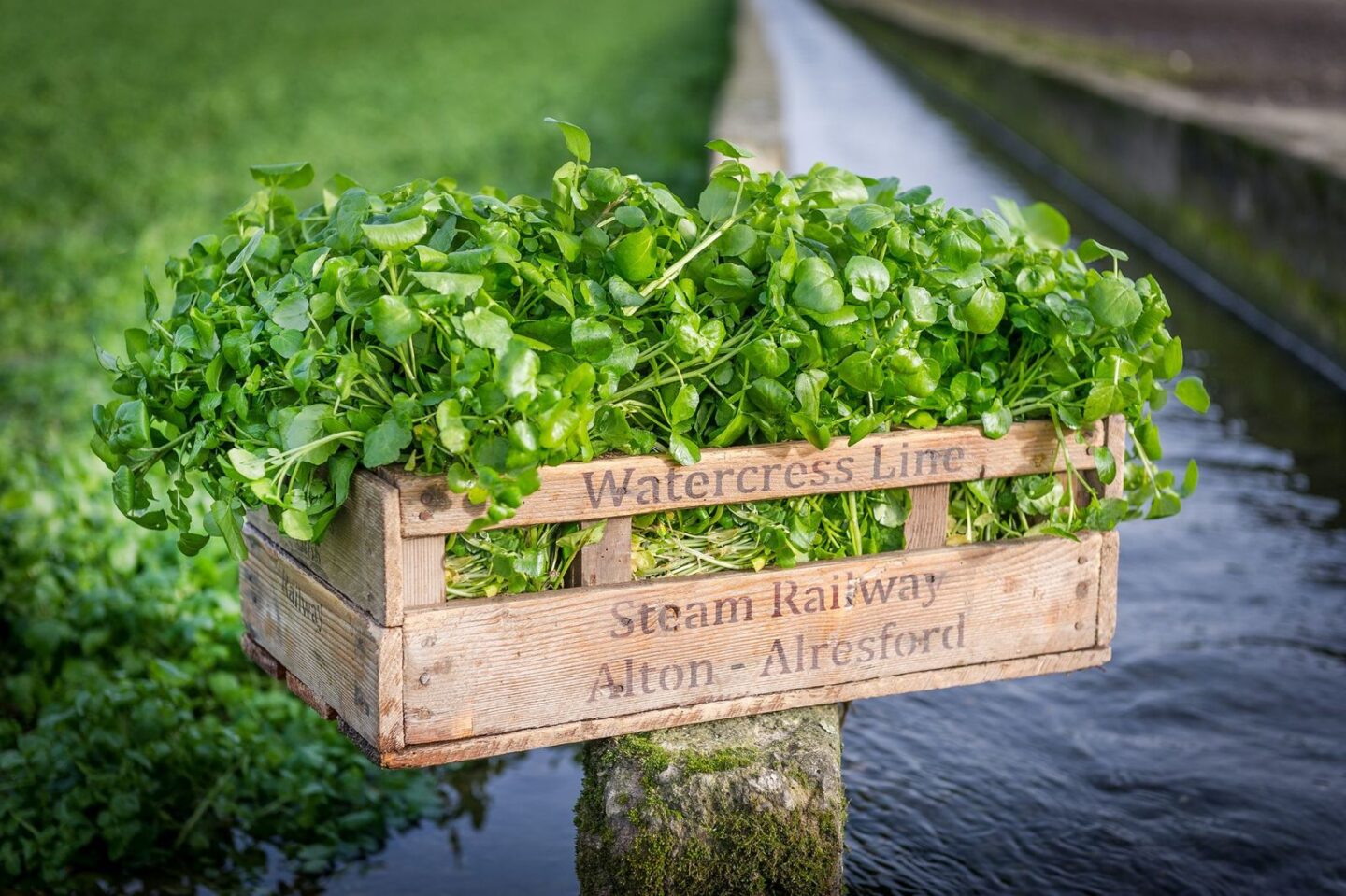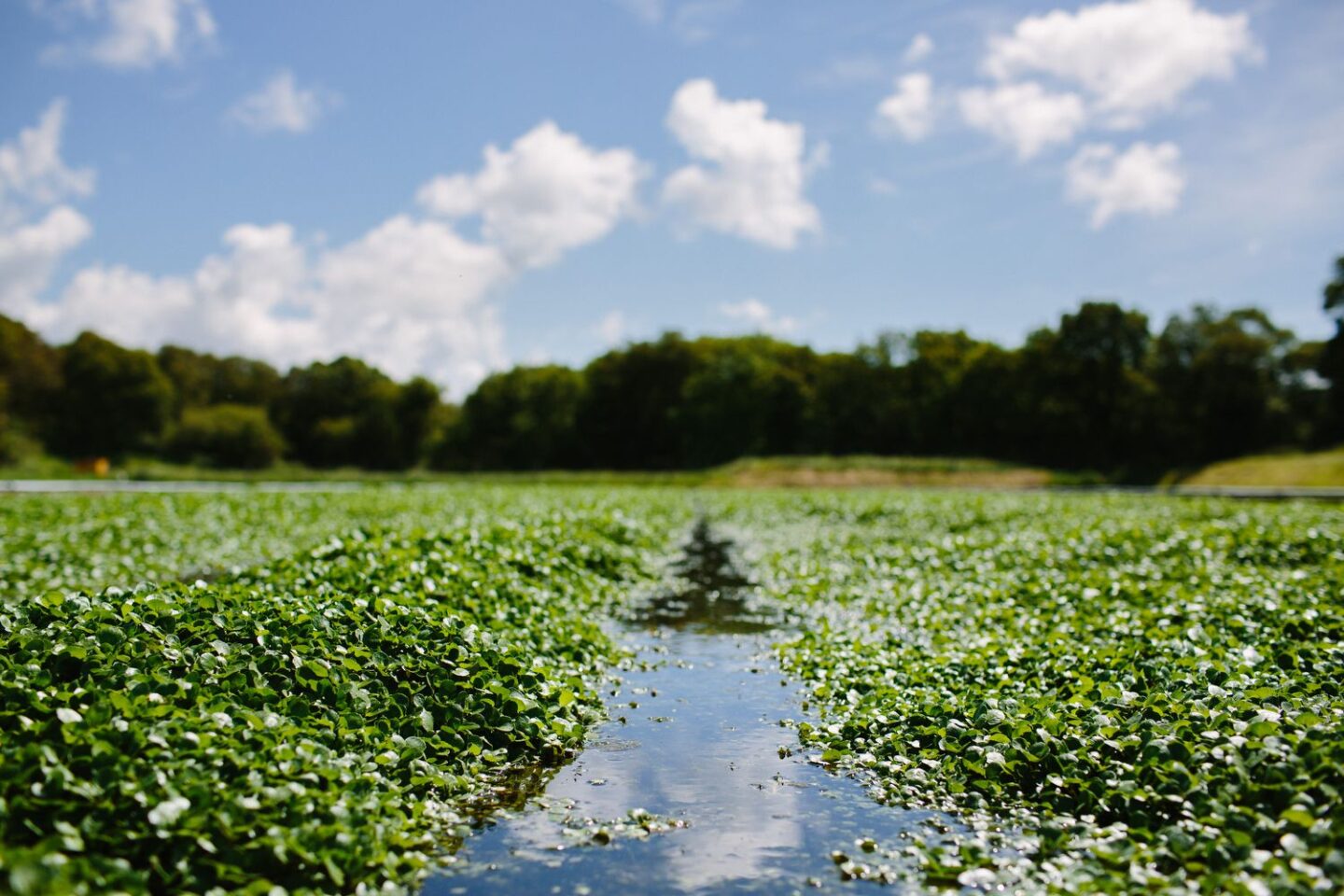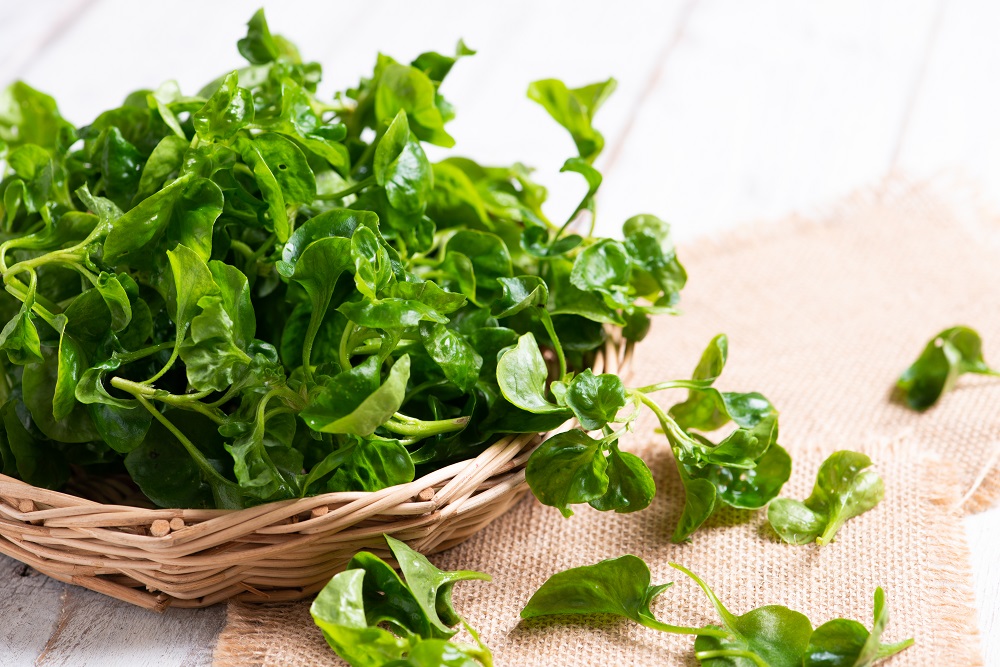Watercress, and it’s distinctive peppery taste is often used to add a kick to salad, soup, smoothies, pesto or pretty much anything! But this underrated little ingredient is actually a real powerhouse of goodness, and contains over 50 vital vitamins and minerals and, gram for gram, more calcium than milk, more folate than bananas, more vitamin C than oranges and more vitamin E than broccoli. Let’s take a look at the health benefits of watercress:

Watercress can be anti-aging
Our skin’s naturally occurring elastin and collagen can be broken down by sunlight, which is why using an SPF is so important. However, two compounds; Isothiocyanate (ITC) and vitamin C, both found in watercress have been known to help prevent the breakdown of collagen and elastin, helping you to retail that youthful glow.
Watercress can help to lower blood pressue
Watercress naturally contains nitrates that can help to create elasticity and in the blood vessels, and this can help to lower blood pressure. To understand how, watch this video.
Watercress is often used in cancer treatment
Phenylethyl isothiocyanate (PEITC) a compound found in abundance in
watercress, is thought to interfere with a critical protein in cancer development. By turning off a signal called Hypoxia Inducible Factor (HIF) it may help to starve tumours of growth and slow down the spread of cancerous cells.

Watercress has amazing eye health benefits
Containing the compounds Lutein and Zeaxanthin, watercress is thought to help to block blue light from reaching the retina, meaning a reduction in light induced oxidative damage which leads to age
related macular degeneration (AMD).
Watercress can boost your iron levels
Unlike many other vegetables, watercress contains high levels of iron, which we need to convert our food into energy and active our immune systems. Usually, for plant iron to be absorbed, Vitamins C and
A are required – but with watercress already having high levels of Vitamins C and A, it’s one of the most relative plant-based sources of iron.
Watercress contains amino acids
Amino acids are considered to be the building blocks of proteins, with their role including regulating the immune function and building muscle. To grow and function properly, your body needs 20 different amino
acids – although only nine are considered essential. The best source of essential amino acids is often considered to be meat-based, but
unusually for a plant, watercress has a full complement of the 9 essential amino acids.
What’s more, whilst watercress is really low in calories half of them are made up of protein, making it a really great choice for vegans and vegetarians!

Watercress can improve bone density and health
Just 100g of watercress can provide 25% of the recommended
daily amount of calcium our bodies need to reach maximum bone density. Additionally, watercress also contains another key nutrient in bone
density: vitamin K.
Watercress can contribute to a healthier gut
Healthy gut bacteria get their energy from fermenting fibre in the food that we eat. Watercress is a brilliant source of fibre, as well as having a high level of antioxidants that are activated by our gut bacteria.
Jumping on the watercress revolution, find hundreds of delicious recipes here.

Just a group of real women dealing with life’s daily struggles! Want to write for us? Email: hello@thedailystruggle.co.uk